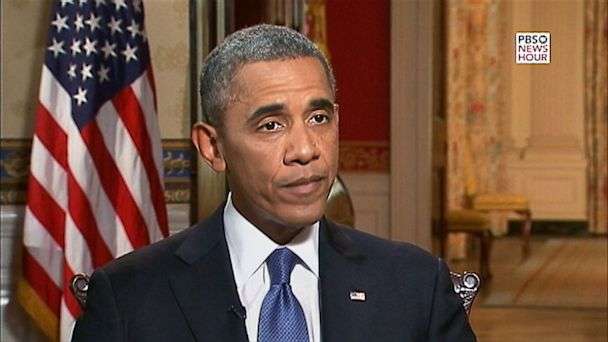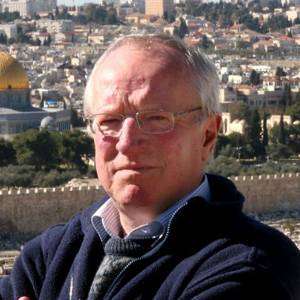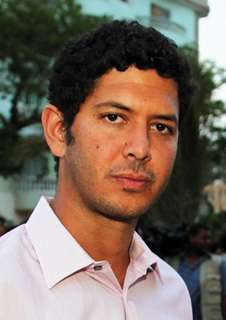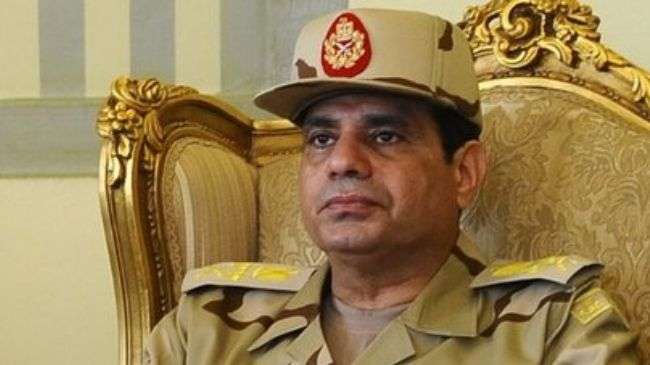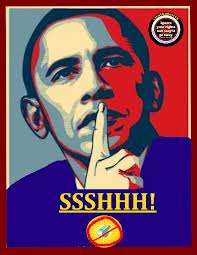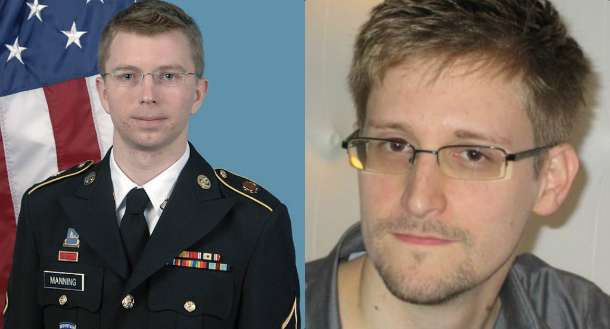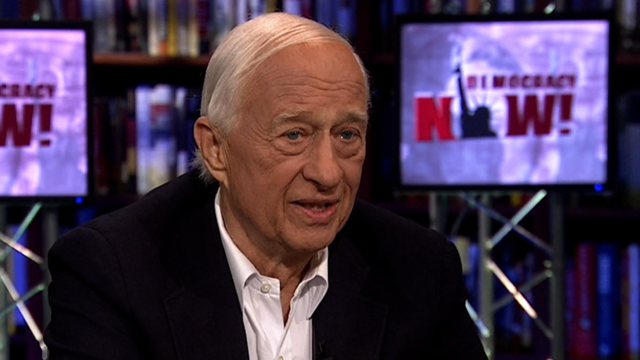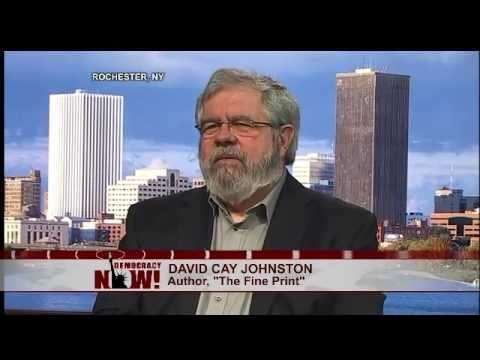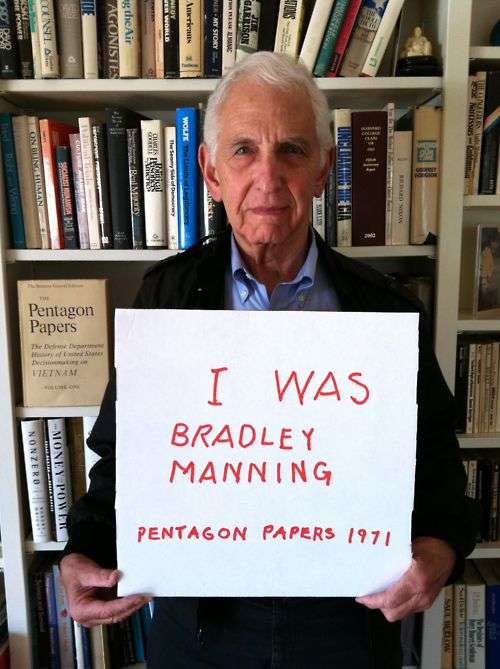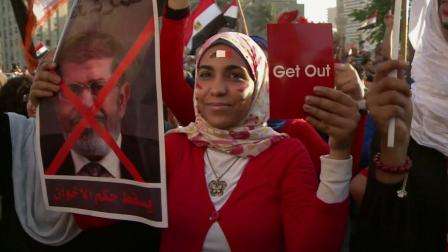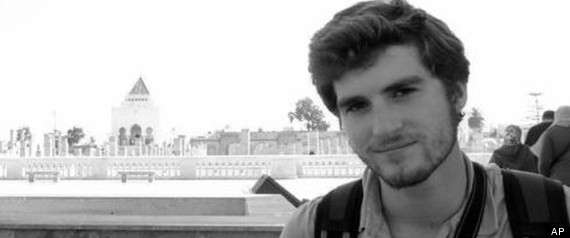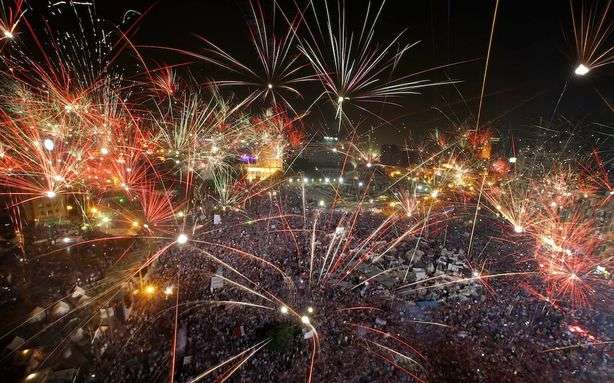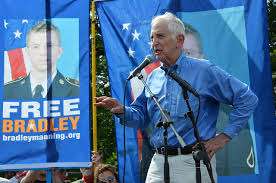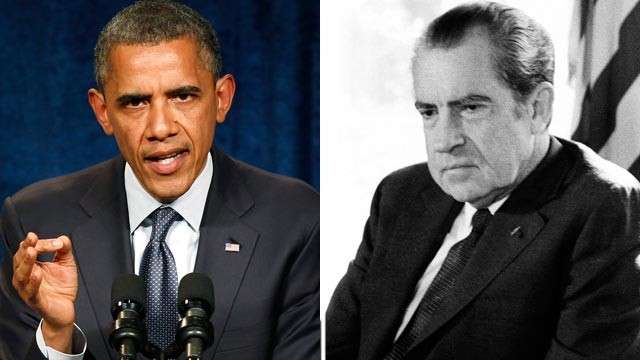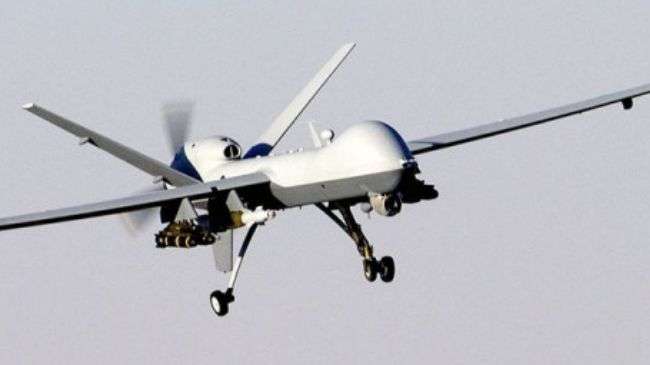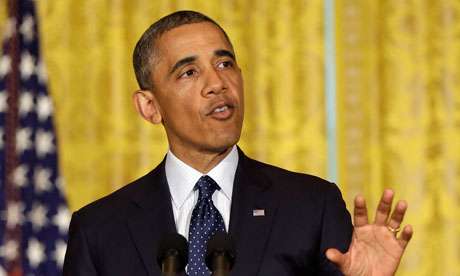 |
| Alaa Abd El-Fattah being interviewed by Abdel Kouddous |
Introduction. 31 March 2014. Today the Egyptian-American Nation writer and journalist based in his home town of Cairo, Sharif Abdel Kouddous, interviewed the prominent Egyptian blogger and political activist Alaa Abd El-Fattah. The interview was broadcast on Democracy Now, which provides a transcript. Alaa Abd al-Fattah, from a family with a number of dissidents and activists, is known for his blog site maintained with his wife Manal, Manalaa.net, mostly in Arabic but with occasional rare but sometimes important entries in English. (For a prominent English language Egyptian political blog see The Arabist.) The interview provides a report on the state of affairs in Egypt three years after the 25 January 2011 revolution from the viewpoint of one of its leaders who was recently released from prison. It was conducted in English, in which both are fluent, though both are also Arabic speakers. Alaa's son Khalid was born when he was in jail in 2011, on a previous occasion, after the resignation of Mubarak. At times he refers to his son and what his son has to look forward to. There is an earlier Democracy Now interview with him after release at that time, in December 2011.
The interview: arrest and imprisonment of a dissident. Alaa Abd El-Fattah, who has had determination and hope in the past, expresses a real sense of defeat, a feeling that the revolution is not happening, and that his imprisonment, which had a purpose on previous occasions, this time has no meaning. First of all Alaa tells Sharif about his (latest) arrest, how his files were gone through and seized and he was beaten for protesting because the police had an arrest warrant and no search warrant. Before he was blindfolded he saw there were dozens of "heavily armed policemen" holding the entire neighborhood at gunpoint. He was taken from room to room, outside in between to confuse him, and left for 12 hours with a dirty rag over his eyes that left him with an eye infection.
Alaa notes that the boundaries between the police and judiciary are broken. Judges come to prisons for trials and sentencing. "So the whole justice system now is explicitly, you know, not even in a secret way, but explicitly and overtly controlled by the police." But with persistence his lawyers were brought in. He was accused of protesting without a permit but also of armed robbery. The cell was relatively decent and clean and he was allowed visitors and to see his lawyers, but he was kept in solitary confinement for the first month.
Solitary: "You go crazy." What was that like? Sharif asks. "You go crazy. You sleep a lot. So, you know, it certainly feels like clinical depression, which it might also be, clinical depression. But you try to fill the time, so reading, writing." He had one hour out of the cell a day. He explained about talking to Al Jazeera correspondent Peter Greste, who had been in Egypt very briefly before being arrested, so needed a lot of "explaining" of the situation; but they talked about literature and their times in Africa too.
Later, Alaa says his being arrested and imprisoned again is quite likely. There are special terrorism courts, though there's a pretense that they are not special, with special circuits. Alaas says his is "a big case," though it "has no purpose except...serving the regime." He already has a suspended sentence that "was based on a very colorful case that was started by the military prior to Morsi’s election and then was dropped." The suspended sentence is of one year, so if he is charged with "even the smallest misdemeanor," he can go back to jail for that year and whatever is added to it.
"A war on a whole generation." He must fight this, but "these are not real courtrooms, this is not true justice, so you have to exert political pressures via protesting, via exposing the irregularities in the process and so on." Alaa knows that while his previous arrests just used his temporary detention to punish him, to keep him quiet for a while, without actual sentencing, this time it's different. Activists from Alexandria and student groups have been sentenced, for one year to five, for two years. Longer, "crazy" sentences on students, 11 years, 14 years, 17 years, have been issued. "They are on a sentencing frenzy," and "I mean," Alaa says, "this is not just about me. And it’s almost as if it’s a war on a whole generation."
There has been "a massive counter-revolutionary wave that has compromised a lot of individuals and parties and political groups, deeply compromised them." More disconcertingly, Alaa reports that even back in the protests against Morsi, the military was manipulating them, and calling out throngs of people "who were saying yes to the military, yes to the police." So last year he participated in protests in which his group could not be heard. He and his friends tried to tell the Muslim Brotherhood people that they were "walking a path that’s going to just lead to the military taking over." The Brotherhood saw him and his dissidents as the threat, and did not recognize that the military was the greater threat. The military coup was being planned, and Morsi's personal prosecutor was pursuing only a few cases against dissidents like him.
Sharif then addresses Alaa about the tradition of dissent in his family -- his sisters, his cousin, and his parents, all activists --and Alaa speaks of conflicts inherited from previous generations, from between the Wars, all of which "is completely crazy..... It’s like most of this country has been born after the end of the Cold War, and none of this makes any sense to any of us. But you have these people talking about Nasserism and neo-Nasserism, and you have these people talking about reversing the mistake of dissolving the Ottoman Empire."
When Alaa speaks of successive generations in his family and those of other dissidents inheriting prison cells, it almost seems as if the cream of the Egyptian intellectual crop are like poor African Americans in the United States. There, as here, few of those in prison represent a "danger to society" in any sense. Only in Egypt, the country is not functioning. Hospitals are "empty shells." Universities are not providing education but are hotbeds of protest and hence regarded as "a problem that we need to control," and Al Azhar University, perhaps the oldest university in the world, which has more Islamic students, have been massively killed in protests and "are regarded as a security threat," surrounded by "an apartheid wall," with armed guards around waiting to move in. Finally, Egypt "has become a completely dysfunctional state with coercion and oppression as its one and only tool."
That's not all. Due to the collapse of housing, people are finding their own "informal" solutions, and police are moving in to destroy them -- exactly like the Israelis with Palestinian houses. In quelling insurrections around the country's borders, " it’s almost as if they’re copying from the Israelis." Alaa has reached the point where he feels it is necessary to "dismantle the state" and rebuild it from scratch, an idea that, of course, terrifies people. The young are alienated and failed to show up for the last referendum, showing this. Healthcare and education are in collapse. For staples the country is dependent on imports, therefore on hard currency, on borrowing from the Saudis and the Emirates, but this cannot last.
And when all this collapses, it will be "scary." When Mubarak collapsed, it was "beautiful." The fear engendered by the coming collapse, Alaa suggests, will be an increase of the polarization that occurred with the fear engendered by Morsi's collapse, and the instability that threatened. While the immediate post-revolution period in 2011 was safe, without police or military control, now, with heavy military control, there is no safety: people are scared and paranoid, and there is chaos.
SHARIF ABDEL KOUDDOUS: You’ve said the word "defeat" a couple of times. Do you think the revolution is over?
No, Alaa replies, you can't know that, or observe the revolution while you are in it. But he observes that there are strikes going on by workers who supported the overthrow of Morsi and the takeover of El-Sisi. The youth may have to survive by their wits, but they will not disappear, and may continue to protest. But at the present time it is hard to espouse a "narrative" of unity of forces and of hope. Hence, the occurrence of the word "defeat." But he hopes that is temporary.
And so must we all.
(Alaa Abd El-Fattah and his wife Manal's blogsite Manalaa.net has been offline since October 2013, when Alaa published his discussion of what a new Egyptian constitution should be. A snapshot of the site can be surfed via CloudFlare Always Online™ technology with the promise that "as soon as the site comes back, you will automatically be served the live version.")

